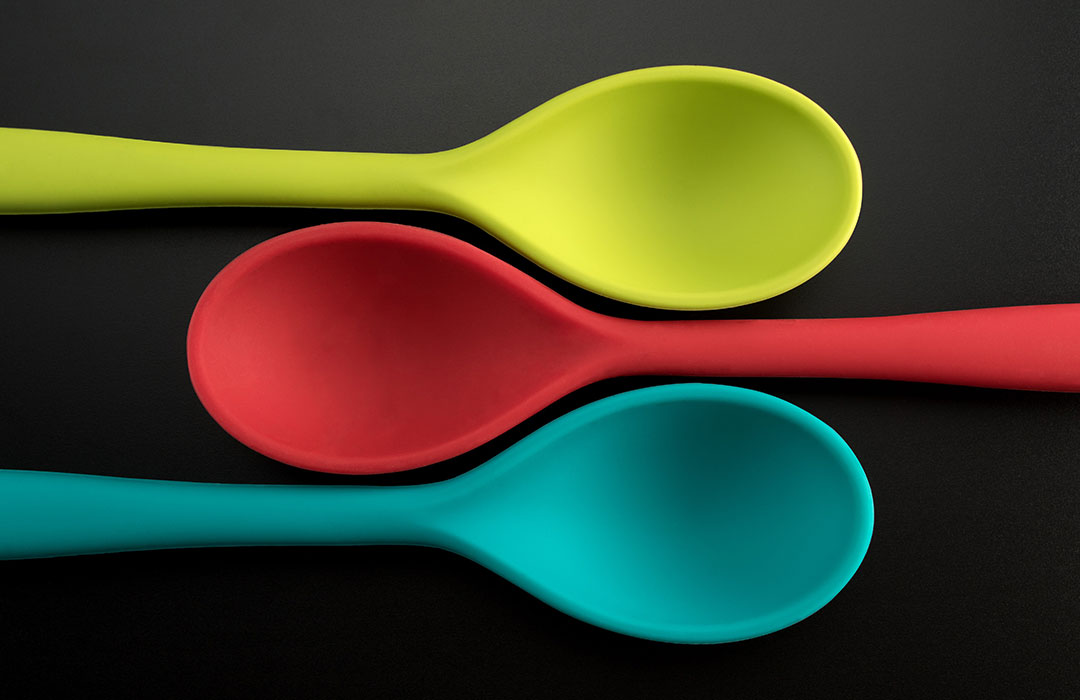
I was scrolling through Facebook recently, when I came across a friend who said she had “run out of spoons”. She reached out to her Facebook friends in hopes of feeling supported and rejuvenated. Personally, I had seen the term but wasn’t sure of its exact meaning. I took to Google to uncover the meaning behind the term, and the search results led me to a chat between two friends, one of whom had Lupus.
Christine Miserandino and her college roommate were sitting at a table together. Christine’s roommate asked what it was like to live with a disease that was invisible to many people. She thought on it for a minute. Then she began collecting spoons from not only their table but the surrounding tables as well. She laid the spoons out in front of her and her roommate. She explained that at the beginning of the day, she would be given 12 spoons, and with each act—showering, going to school, changing clothes, etc.—she’d have a spoon taken away. Her spoons were limited, and because of that she had to use them carefully. Sometimes, she just didn’t have enough spoons to get through, and she’d have to figure out a new strategy.
As I read this, I began thinking about some of my clients who also tackle living with physical and psychological ailments that require them to “count spoons”. After I read this story, I began sharing it with them and watched as they all related to it.
I spoke in a rehab center for people who had suffered from Traumatic Brain Injury (TBI). Most in attendance were stroke survivors, and the resilience they displayed left me speechless. One person in attendance was a yoga teacher who had partial paralysis on her left side and used her functioning right arm to move the left. She since has returned to Yoga, teaching part-time from her wheelchair.
On my way to the rehab center to speak, I made the decision to include the spoon theory in my presentation. Luckily, I thought of it in time to stop and pick up some plastic spoons to give out as tangible reminders of the story. There was a convenience store close by, and I chose to go in, in hopes of finding some spoons to bring with me. Instead, I found forks. It’s safe to say I was disappointed. With further thought, though, I decided to add that concept to the mix, since sometimes, to paraphrase Alanis Morissette’s song Ironic: “It’s like ten thousand spoons when all you need is a knife.”
As I was giving my presentation, and the analogy came into play, I attempted to open the bag of forks and they went flying across the room. Those in attendance agreed that sometimes they did feel as if they ran out of spoons, and sometimes spoons were exchanged for forks—in other words, unexpected situations happen. Whether they are in your control or not, these forks need to be gathered together and sometimes you have to be able to laugh at the absurdity of it all.
A couple days after my presentation, I went to spend time with a dear friend of mine battling cancer. She is a resilient fighter. Sometimes, though, she feels as if she has suddenly run out of spoons and wonders where she can find them when the proverbial utensil drawer is empty. And oftentimes, that is when resources present themselves. Before I left home, I took a spoon and fork, tied a red ribbon around them and wrote out a card that reminded her that there is always extra, just in case.
I have served as a caregiver for my loved ones over the years, and professionally as a therapist for almost four decades. I have my own supply of spoons to utilize each day and I typically spend them by just doing my job, not to mention day to day functions. I tend to tell myself that I don’t have the ability to run out of spoons, since I typically feel like my role is to be the dispensary. I should have an infinite supply! However, that has proven to be false as I’ve experienced various health crises that could be credited to being careless with my own spoon supply.
Feeling like your drawer is a little empty? Here are some ways to add spoons to your drawer:
- Spend time with loved ones who sustain your energy and don’t drain it
- Spend time outside
- Take up photography
- Practice yoga and/or mindful meditation
- Eat a healthier diet
- Exercise
- Read a good magazine or book
- Start a journal
- Find a hobby
- Start a garden
- Support group attendance
- Get a massage
- Give (or receive) hugs
- Dance!
- Take a nap
- Listen to music or sing
- Do a creative activity (for example: paint, draw, or color in an adult coloring book)
- Take a bath
- Play games
- Spend time with animals
- Go somewhere new
- Go to the movies or curl up at home and watch your favorite movie
- Reminding yourself of your accomplishments
- Create a scrapbook
- Throw a brief temper tantrum and cry it out
- Have a good laugh
Let’s keep in touch! Sign up to receive our newsletter:
Start a Relationship with An Exceptional Counselor
- Skilled and caring professional counselors
- Accepting all major and most insurances
- High-touch customer service & premium benefits
- Same- or next-day appointments
- Ultra-flexible 23.5hr cancellations













